By Rafael Malo Alcrudo
All along the third meridian
in Europe, from Caucasus to Alentejo, live, and have reached us through
the centuries, big wolf-like molossian breeds, traditionally 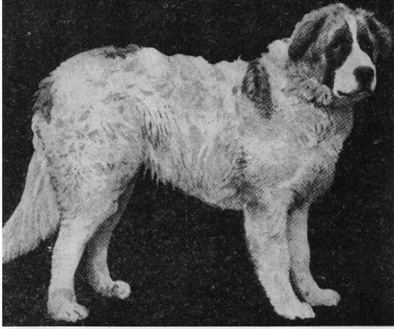 used
for the guardianship of flocks and perfectly adjusted to different working
conditions, climate and customs of the different countries where they carry
out their useful activity. So, such breeds as Anatolian Karabash, Caucasian
Sheepdog, Kuvasz, Komondor, Tatra Sheepdog, Maremma Sheepdog, Pyrenean Mountain
Dog, Spanish Mastiff, Refeiro del Alentejo, Cao de Serra de Estrela, among
others, have reached our days. Inside this group, we meet our breed, which
used
for the guardianship of flocks and perfectly adjusted to different working
conditions, climate and customs of the different countries where they carry
out their useful activity. So, such breeds as Anatolian Karabash, Caucasian
Sheepdog, Kuvasz, Komondor, Tatra Sheepdog, Maremma Sheepdog, Pyrenean Mountain
Dog, Spanish Mastiff, Refeiro del Alentejo, Cao de Serra de Estrela, among
others, have reached our days. Inside this group, we meet our breed, which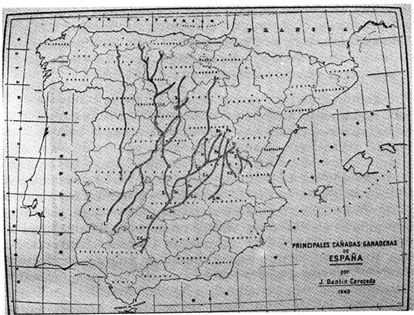 is perfectly fit to the peculiar transhumant system in Aragon.
While the
transhumant system in the Kingdom of Castile, with very long routes (as
the map reproduced on the right side shows) and meticulously regulated
by the "Honrado Concejo de la Mesta", produced
the breed that is nowadays
known as Spanish Mastiff, the Crown of Aragon, with different rules and
laws for each
is perfectly fit to the peculiar transhumant system in Aragon.
While the
transhumant system in the Kingdom of Castile, with very long routes (as
the map reproduced on the right side shows) and meticulously regulated
by the "Honrado Concejo de la Mesta", produced
the breed that is nowadays
known as Spanish Mastiff, the Crown of Aragon, with different rules and
laws for each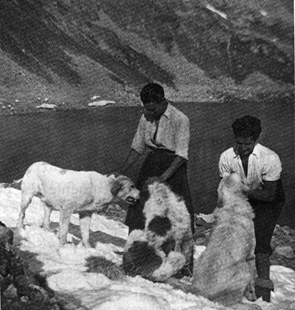 of the valleys and districts that made it up, much smaller
than those of the nearby Kingdom of Castile, selected the Pyrenean Mastiff.
With river Ebro as a symbolic barrier, the influence of the two breeds was
relatively poor and their features
openly different. The Pyrenean Mastiff shares
a large part of his history with the Pyrenean Mountain Dog. We are referring
to the
of the valleys and districts that made it up, much smaller
than those of the nearby Kingdom of Castile, selected the Pyrenean Mastiff.
With river Ebro as a symbolic barrier, the influence of the two breeds was
relatively poor and their features
openly different. The Pyrenean Mastiff shares
a large part of his history with the Pyrenean Mountain Dog. We are referring
to the 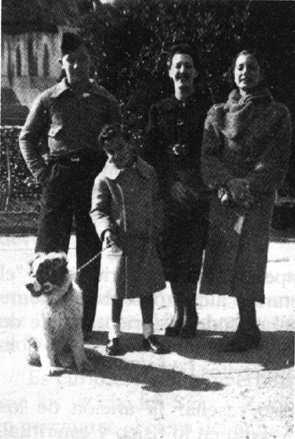 north-south
division of the Pyrenean valleys which belonged from an administrative point
of view to the reigns of Navarra and Aragon and the Principality of Catalonia
until 1659, the year when Cardinal Mazzarino, ruler of France, and Philip
IV, king of Spain, signed an agreement called "Pyrenean Peace", according
to which the whole northern part of the cordillera had to pass under the
French
rule. From this moment on, the Frenchmen selected their own dog until they
obtained the modern wonderful
Pyrenean Mountain Dog, while on the Spanish side the traditional, more primitive
and heavier, less refined and homogeneous type was kept.
north-south
division of the Pyrenean valleys which belonged from an administrative point
of view to the reigns of Navarra and Aragon and the Principality of Catalonia
until 1659, the year when Cardinal Mazzarino, ruler of France, and Philip
IV, king of Spain, signed an agreement called "Pyrenean Peace", according
to which the whole northern part of the cordillera had to pass under the
French
rule. From this moment on, the Frenchmen selected their own dog until they
obtained the modern wonderful
Pyrenean Mountain Dog, while on the Spanish side the traditional, more primitive
and heavier, less refined and homogeneous type was kept. 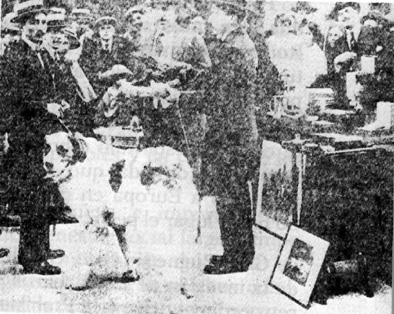 Without
any doubt, during the international expansion the official love of dogs
knew at the end of 19th century and all the 20th century, the two breeds
had a very different evolution and luck. While the Frenchmen were making
a very good work of selection and promotion of their nice breed (numerous
and qualified breeders from other countries followed), in Aragon the Pyrenean
Mastiff was simply surviving without any progress. When the last Pyrenean
wolf died, at the end of '40s, it was rather senseless to keep a very big
dog without a specific duty: the guardianship of flocks from the attack
of wolves. Moreover, Spain was in a post-war period, with serious economic
problems, so it seemed completely irrational to feed an animal that wasn't
useful any more. Fortunately for us, in the '70s, a group of wolves crossed
the mountains, so once again it was necessary to use a good sheepdog to
protect the flocks. By selecting the most typical subjects, we slowly started
to recover our breed. In 1977, the foundation of the Club of the Pyrenean
Mastiff in Spain was providential to save our imposing breed from aragon.
Without
any doubt, during the international expansion the official love of dogs
knew at the end of 19th century and all the 20th century, the two breeds
had a very different evolution and luck. While the Frenchmen were making
a very good work of selection and promotion of their nice breed (numerous
and qualified breeders from other countries followed), in Aragon the Pyrenean
Mastiff was simply surviving without any progress. When the last Pyrenean
wolf died, at the end of '40s, it was rather senseless to keep a very big
dog without a specific duty: the guardianship of flocks from the attack
of wolves. Moreover, Spain was in a post-war period, with serious economic
problems, so it seemed completely irrational to feed an animal that wasn't
useful any more. Fortunately for us, in the '70s, a group of wolves crossed
the mountains, so once again it was necessary to use a good sheepdog to
protect the flocks. By selecting the most typical subjects, we slowly started
to recover our breed. In 1977, the foundation of the Club of the Pyrenean
Mastiff in Spain was providential to save our imposing breed from aragon.
All the pictures are taken from "El libro del Mastin del Pirineo" - Guara Editorial